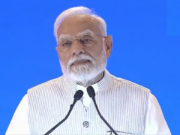
“We didn’t quite get over the finish line yet. We know that change is needed, but change is hard to come by. It takes time. It takes work,” Poilievre said while addressing his supporters.
Poilievre was defeated by a Liberal newbie, Bruce Fanjoy, in the Carleton riding, which he had represented since 2004. Fanjoy attributed his victory to consistent grassroots campaigning and remarked that Poilievre had become complacent. “Pierre, God bless him, he took the riding for granted,” Fanjoy said. “People don’t like to be taken for granted.”
His loss and the party’s defeat have sparked internal divisions within the Conservative Party. Although some members are in support of Poilievre due to an increase in the total number of seats in 2025 compared to the previous poll in 2021.
Andrew Scheer, a former Conservative leader, praised Poilievre’s campaign, stating it achieved “the highest vote percentage in modern Conservative history.” “I think he has rock-solid support among the party membership,” Jamie Ellerton, a Conservative strategist, said in an interview.But there are several voices critical of his leadership style and choices. A veteran Conservative described the election results as “an unmitigated disaster,” arguing that Poilievre’s polarizing approach alienated potential voters.
“He’s divisive. He’s polarizing. He’s so aggressive. And he drove people who would have ordinarily voted for other political parties to the Liberal party,” the source said.
“This is a big loss to a tired government that’s been in power for 10 years,” one senior Conservative source who worked for Poilievre in the past.
“The guy couldn’t do what needed to be done. He utterly refused to acknowledge that the ballot box question had changed to the bitter end,” the source said, referring to the U.S. trade war.
While conceding defeat and addressing his supporters, Poilievre promised to lead the party, but now his loss leaves him without a seat in Parliament, raising questions about his ability to effectively lead the party from outside the House of Commons and further complicating the situation.
The constitution of the Conservative Party allows for a leadership review, and there is a high chance that it could be triggered by the caucus or at the next party convention.
The question remains whether Poilievre can reclaim a seat and his authority in the House of Commons and his party. But with the situation complicating and deepening of the internal division, one thing is certain that the next chapter of Conservative leadership will not be written quietly.



































